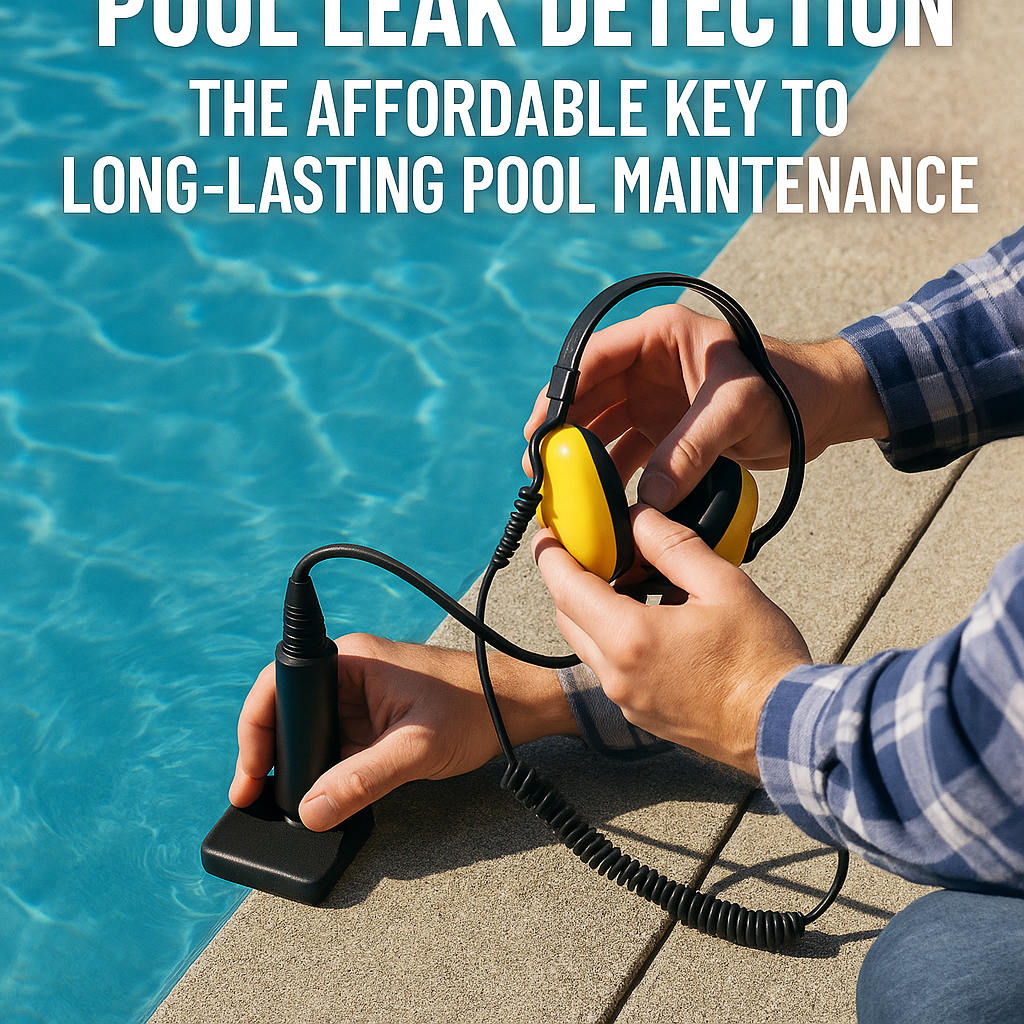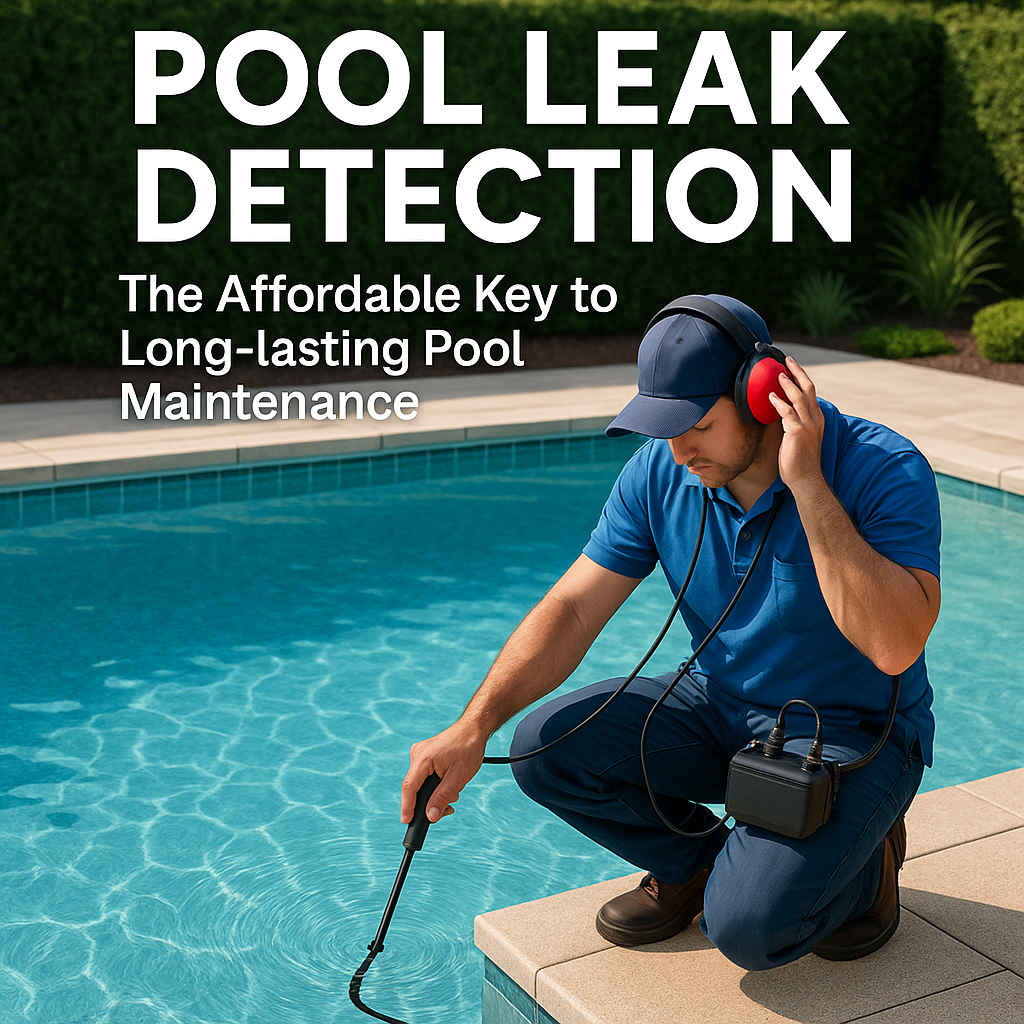Pool leak detection is an essential aspect of maintaining your swimming pool to ensure it maintains its longevity and functionality. It can also play a significant role in keeping pool maintenance costs manageable over time. A simple leak can lead to hefty repair bills if not identified and addressed promptly. But how does one detect a pool leak, and what steps should we take once a leak is found? Let’s get into the importance of pool leak detection, how to detect a pool leak, and the role of pool leak repair in the overall pool maintenance process.
Importance of Pool Leak Detection

Pool leak detection is crucial in maintaining your pool in the best shape possible. If a leak is left unchecked, it can lead to a myriad of problems. First, it can cause water wastage. A small leak can waste thousands of gallons of water every month, leading to excessively high water bills. Also, persistent leaks can damage the pool structure, causing premature wear and tear. Last but not least, water leaks can damage the surrounding areas, leading to soil erosion or damage to your backyard landscape.
By detecting pool leaks early, you can take rapid action to limit the damage. It will save you money on your water bill, protect your pool structure, and maintain the aesthetic beauty of your backyard.
Detecting a Pool Leak: Steps to Follow
Identifying a leak in your pool may require careful observation and some basic techniques. Here are a few steps to help you track down those elusive leaks:
Check Water Levels: An unexpected drop in water levels may be a clear sign of a pool leak. You can do the “bucket test” to confirm. This involves filling a bucket with pool water and marking the water level. Place this bucket on the pool step and mark the water level on the outside as well. After a few days, if the outside mark drops more than the inside one, you may have a leak.
Inspect Pool Components: Regularly check your pool equipment like the filter, heater, and pipes for any signs of leaks. You should also pay attention to the pool shell. Look for cracks or gaps in the tile and concrete, which could be potential sources of leaks.
Professional Leak Detection: If you suspect a leak but cannot locate it, it may be best to call in a professional for pool leak detection. They have specialized tools and experience to detect even the most hidden leaks accurately.
Pool Leak Repair: An Integral Part of Pool Maintenance
Upon detecting a pool leak, immediate repair is essential. The nature and location of the leak will determine the type of repair required. For some minor leaks, pool sealants or patches might do the trick. However, for more significant issues, you may need to replace certain components or even conduct a full resurfacing.
Furthermore, conducting professional pool leak repair ensures that the leaks are fixed correctly and that there is minimal likelihood of recurrence. While DIY solutions can be tempting to save some dollars, improperly fixed leaks can lead to further damage.
Pool maintenance is not just about keeping the water clean and balanced. It also involves regular checks for any potential issues, including leaks. Pool leak detection often forms the first line of defence against unwanted pool damages.
Final Remarks
The value of affordable and effective pool leak detection and repair cannot be overstated. Regular pool maintenance, including leak detection and repair, pays off in the long run in terms of financial savings, reduced water wastage, and extended pool lifespan. Every pool owner needs to prioritize this aspect of pool care, not just for the pool’s health but for the preservation of their surrounding environment too.
Remember, a well-maintained pool is not merely an aesthetic addition to your backyard; it’s an investment that will serve you for many years to come. So pay attention to those pool leaks, fix them promptly, and enjoy your swim with peace of mind.


